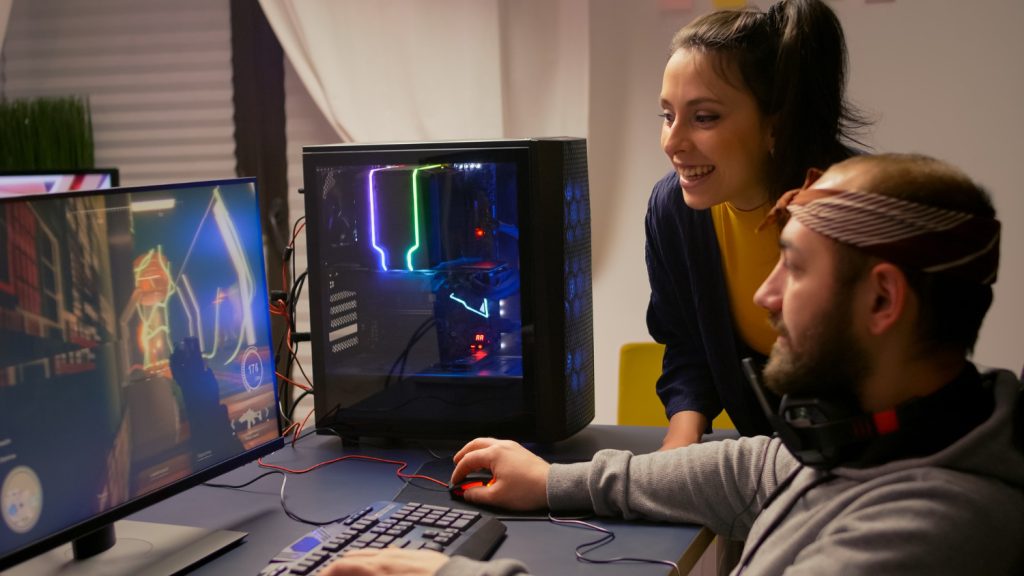Game development in 2025 is more accessible than ever. From indie creators building mobile games to studios releasing high-end titles for PC and console, a wide range of game engines and development platforms are available today. But choosing the right software can make or break your project’s success.
In this guide, we break down the best software for game development—tools that help developers design, code, animate, and launch games efficiently. Whether you’re working solo or as part of a large team, these platforms offer powerful capabilities tailored to different needs and experience levels.
Why Game Development Software Matters
Game development software serves as the backbone of your creative process. It brings together the tools for designing levels, managing physics, scripting game logic, building UIs, and deploying across platforms. The best platforms provide not just performance, but scalability, community support, and the ability to bring your creative vision to life.
Top Features to Look For
-
Cross-platform deployment (PC, mobile, console, web)
-
Graphics and rendering capabilities (2D/3D support)
-
Scripting languages and flexibility
-
Asset and animation management
-
VR/AR development support
-
Community and documentation
-
Third-party plugin ecosystem
Best Software for Game Development in 2025
1. Unity
Unity is one of the most widely used game engines in the world. Known for its flexibility, asset store, and cross-platform support, Unity is suitable for everything from mobile games to AAA-level 3D experiences.
Key Features:
-
Supports 2D, 3D, AR, and VR game development
-
C# scripting with powerful APIs
-
Built-in physics and lighting engine
-
Asset Store with thousands of ready-to-use assets
-
Cross-platform build support (25+ platforms)
2. Unreal Engine
Unreal Engine by Epic Games is a high-performance engine best known for its stunning graphics and visual fidelity. It’s ideal for PC, console, and next-gen game development.
Key Features:
-
Blueprint visual scripting and C++ support
-
Real-time ray tracing and advanced lighting
-
Niagara VFX system for dynamic effects
-
Metahuman support for realistic characters
-
Free to use with royalty model
3. Godot Engine
Godot is an open-source game engine that’s rapidly gaining popularity for its lightweight structure and accessible scripting model. It’s great for 2D and simple 3D games.
Key Features:
-
Scene-based architecture
-
Supports GDScript, C#, and VisualScript
-
2D and basic 3D game development
-
Lightweight and fast editor
-
Active open-source community
4. GameMaker
GameMaker by YoYo Games is an easy-to-learn engine geared toward 2D game development. It’s ideal for indie developers and educators.
Key Features:
-
Drag-and-drop editor and GML scripting
-
Optimized for 2D games
-
Built-in sprite editor and animation tools
-
Cross-platform publishing
-
Royalty-free licensing
5. RPG Maker
RPG Maker is a niche engine built specifically for creating role-playing games. It’s favored by solo creators and game design students looking to prototype quickly.
Key Features:
-
Event-based programming system
-
Built-in tile map and character editor
-
Easy database for items, characters, and skills
-
Plugin support via JavaScript
-
Export to desktop and mobile platforms
6. CryEngine
CryEngine is a powerful graphics-focused game engine built for developing visually rich and immersive experiences. It’s suited for advanced developers working on PC and console titles.
Key Features:
-
Real-time rendering and advanced physics
-
C++ and C# scripting support
-
AI and terrain tools
-
VR and AR capabilities
-
Free to use with royalty model
7. Cocos Creator (Cocos2d-x)
Cocos Creator is a free, open-source engine ideal for mobile 2D games. It’s lightweight and has a strong following in the HTML5 and mobile gaming community.
Key Features:
-
JavaScript and TypeScript support
-
Built-in UI editor and animation tools
-
Native and web export options
-
Real-time preview of changes
-
Great for mobile and casual game developers
8. Construct 3
Construct 3 is a no-code game development platform built for browser-based and mobile 2D games. It’s user-friendly and ideal for quick prototyping and learning.
Key Features:
-
Event-based visual scripting
-
No installation (runs in browser)
-
Cross-platform export to HTML5, Android, iOS
-
Asset store and cloud save
-
Great for beginners and educators
9. Defold
Defold is a cross-platform, lightweight game engine ideal for teams building 2D games. It’s backed by King (makers of Candy Crush) and supports Lua scripting.
Key Features:
-
Lightweight and optimized for performance
-
Lua scripting language
-
Scene editor and GUI builder
-
One-click deployment to multiple platforms
-
Completely free to use
10. Amazon Lumberyard
Amazon Lumberyard is a AAA-capable game engine based on CryEngine. It’s designed for deep integration with AWS and Twitch, making it ideal for games with live services or multiplayer components.
Key Features:
-
Full C++ access and visual scripting
-
AWS Cloud integration for multiplayer and backend
-
Twitch features for interactive streaming
-
Advanced rendering engine
-
Free to use, AWS charges apply
Comparison Table
| Software | Best For | 2D/3D Support | Scripting Language | Platforms | Pricing |
|---|---|---|---|---|---|
| Unity | Cross-platform apps & games | 2D & 3D | C# | iOS, Android, PC, Web | Free / Royalty |
| Unreal Engine | High-end console & PC games | 3D (AAA-grade) | C++, Blueprint | All major platforms | Free / Royalty |
| Godot Engine | Indie & 2D developers | 2D & Light 3D | GDScript, C#, C++ | Windows, macOS, Linux | Free (Open Source) |
| GameMaker | 2D Indie games | 2D | GML | PC, Mobile, HTML5 | Paid |
| RPG Maker | JRPG-style games | 2D | JavaScript | PC, Mobile | Paid |
| CryEngine | Realistic 3D visuals | 3D | C++, C# | PC, Console | Free / Royalty |
| Cocos Creator | Mobile & Web 2D games | 2D | JS, TypeScript | Android, iOS, HTML5 | Free |
| Construct 3 | No-code 2D games | 2D | Visual (Event-Based) | HTML5, Android, iOS | Free / Paid |
| Defold | Lightweight 2D games | 2D | Lua | HTML5, Android, iOS | Free |
| Amazon Lumberyard | AAA + Online games | 3D | C++, Script Canvas | PC, Console | Free + AWS usage |
How to Choose the Right Game Development Software
Your ideal choice depends on your goals:
-
New to development? Start with Construct 3 or GameMaker.
-
Making high-end games? Use Unreal Engine or CryEngine.
-
Want cross-platform 2D/3D support? Unity is the most versatile.
-
Need open-source and light-weight? Try Godot or Defold.
-
Building role-playing games? RPG Maker is tailored to that genre.
-
Focused on mobile games? Use Cocos Creator or Unity.
Also consider factors like team size, budget, asset needs, and monetization strategy.
Conclusion
The game development industry in 2025 offers an incredible range of software to match every creator’s skill level, platform focus, and creative ambition. Whether you’re designing a simple 2D mobile game or building the next AAA title, the right game engine will empower your vision and streamline your workflow.
Evaluate each tool based on your technical comfort, visual goals, and monetization plan—and start building with confidence.







